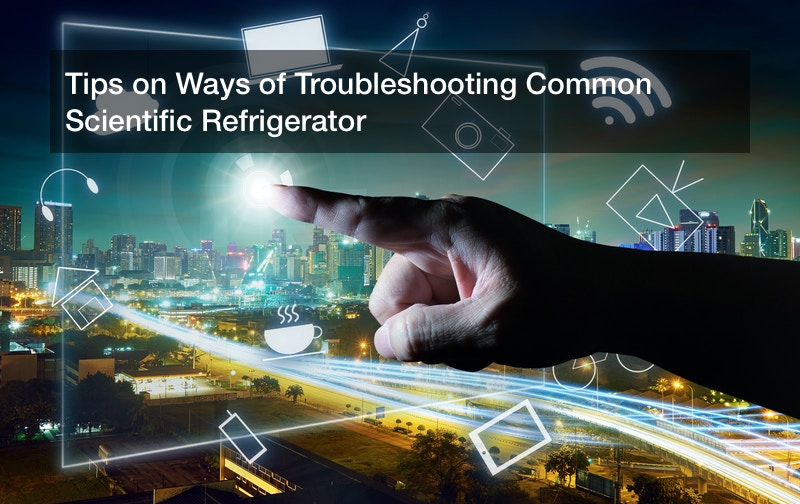
Your scientific refrigerator or freezer is the essential equipment in the cold preservation of vaccines. Without a working refrigerator, your vaccines may lose their potency because of getting exposed to temperatures that are beyond their storage temperature range. These refrigerating units often get problems because of accessory damage or normal wear and tear.
This blog post will take you through some quick troubleshooting tips that will help you identify common biomedical refrigerator problems.
Here are some insights on how to solve common vaccine scientific refrigerator woes.
Indoor Pools of Water
Is there a puddle of water in your scientific refrigerator? Pools of water in a scientific freezer often occur because of the blockage of the drain tube. For a quick fix of the problem, you should unplug the refrigerating unit’s drain plug and move it to the bottom or back of the unit’s main compartment.
To unblock such pipe clogging, you can use a turn-key baster to put a solution of warm water and bleach into the blocked tube. You should repeat the process until the pipe gets unclogged. After that, you should clean the drain pan at the bottom of the scientific refrigerating unit to ensure the whole draining system is operational.
Showing Arctic Lights
Is the frostless scientific refrigerator in your laboratory building an igloo from its interior? A leaking door gasket may be the most likely problem in this case. The gasket can allow cold air to escape and thus reducing the unit’s efficiency in cooling its interiors.
As such, most self-adjusting vaccine storage refrigerators may run overtime to produce the extra cooling required in the freezer. You should examine the gasket by placing an emergency powered light within the refrigerator and pointing its beam towards the door.
Thereafter, you should turn off the lights of the room and check the door’s perimeter to determine whether there is some light leaking through it. If there is a problem, then you should replace your door gasket with an appropriate and genuine pharmaceutical grade refrigerator part.
Excessive Energy Consumption
Is the frequency of your scientific freezer’s cycling high and its energy consumption above normal? Dirty condenser coils with layers upon layers of sticky debris reduce the cooling efficiency of your refrigerator. As such, the unit has to overwork to improve its cooling capacity, and thus consuming more power.
The coils dispense heat that is removed from the refrigerator. These coils also attract dusty and any other fine debris that flows through your laboratory. To solve such a problem you can use a vacuum cleaner to clean up the coils. You can also use a filter fabric on the vent panel to prevent any dirt from getting to the condenser coil.
Loose Vaccine Refrigerator Freezer Doors
Your refrigerator door should always be locked to improve the working efficiency of your freezer. Frequent opening of your freezer’s door or keeping it unlocked for long can destabilize the refrigerator’s temperature. The American Centers for Disease Control and Prevention organization states that vaccines stored in a refrigerator need a temperature range of 50 to 15 degrees Celsius or 58 to 5 degrees Fahrenheit to remain potent. It’s thus advisable to install a latch on your refrigerator door to prevent accidental opening.
Troubleshooting your scientific refrigerator is a pretty simple task, and most problems can be rectified by a basic handyman. But some complications may need the attention of an experienced hand. If you notice any issue that you can’t fix, then you should call a repair technician.
Here are some of the signs showing that your scientific refrigerator needs the attention of a technician:
- A sweating outer shell of the refrigerating unit
- The refrigerating unit keeps on cycling on and off even after the cleaning of the coils
- Audible hissing sounds from a refrigerator with a poor cooling efficiency
- Pools of leaking water from the unit and whose source is unidentifiable
- Damage on the condenser coils
- Oily residues on the freezer compartments
If you detect any of these signs, then you should call your local refrigerator technician.
